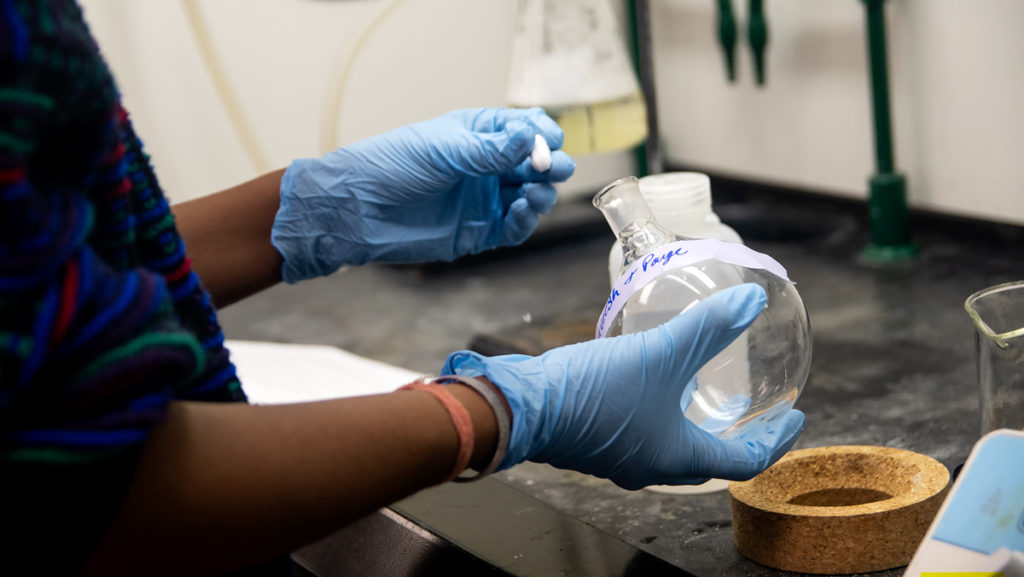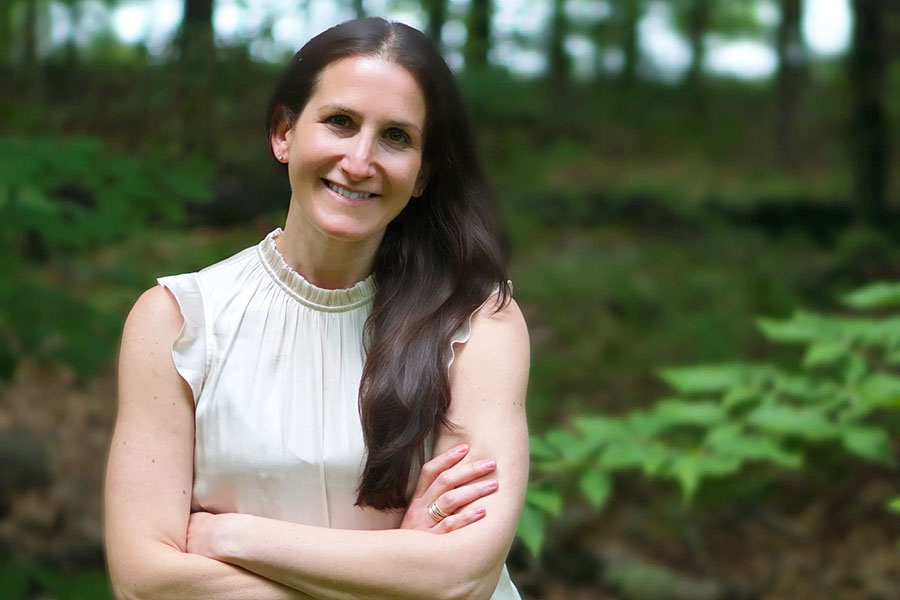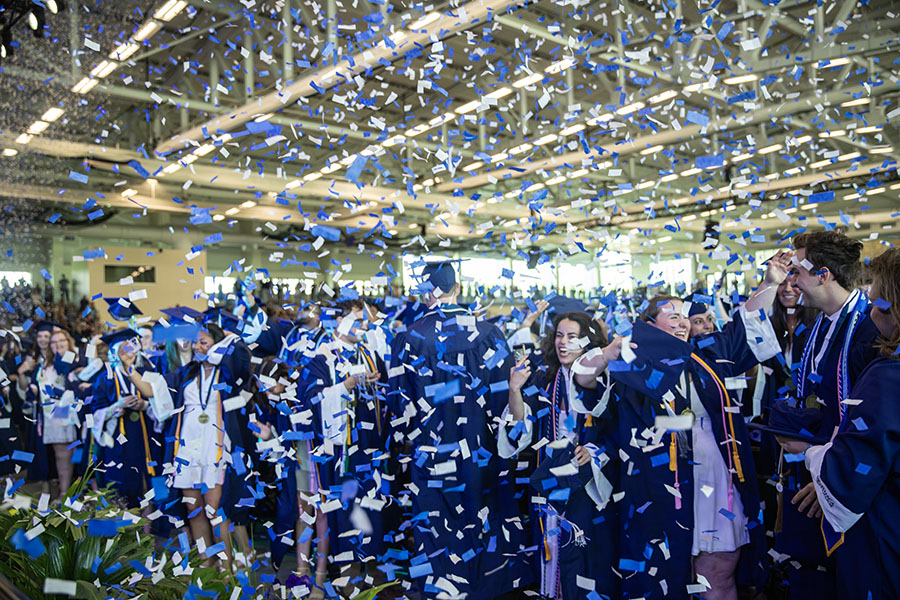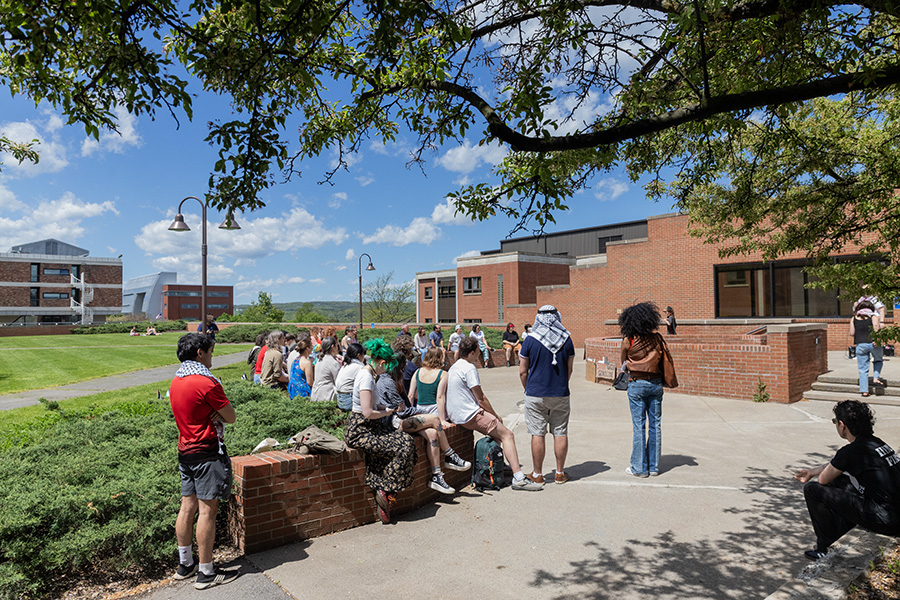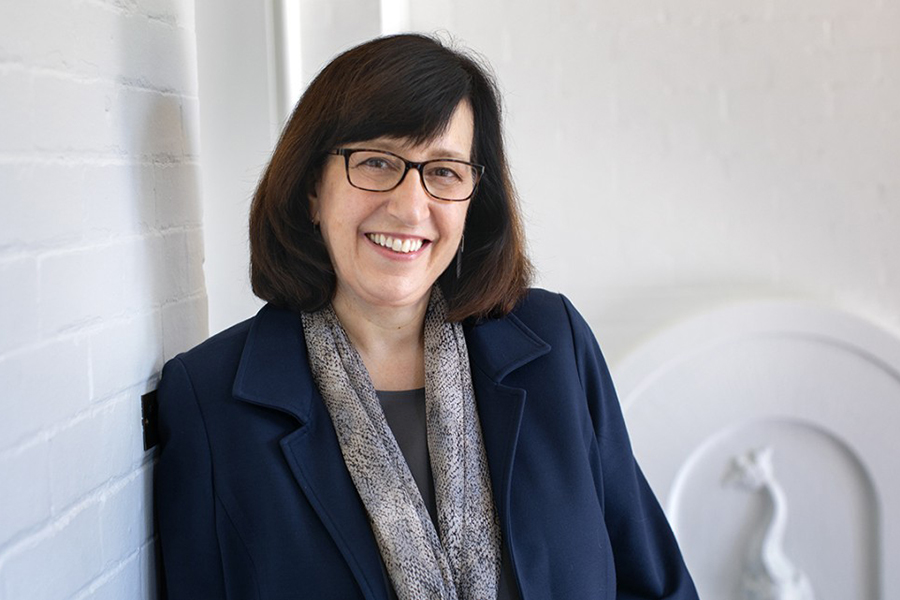A team of faculty and staff at Ithaca College received a research grant of nearly $650,000 from the National Science Foundation to establish a STEM scholarship program for low-income and underrepresented students.
Kelley Sullivan, associate professor in the Department of Physics and Astronomy and lead investigator for the project, said that receiving the grant is an exciting way to try and diversify science.
“Communities in STEM are recognizing the need to support first-gen, low-income minority [students],” Sullivan said. “We are a cisgendered, white male-dominated, monied system. … Granting agencies are … sort of waking up to that and realizing that something really has to happen to motivate change. So these types of grants help motivate that change.”
The grant was awarded to Sullivan and the team of co-investigators for their proposed research project, “STEM Community Building to Support Academic Success and Retention of Low-Income Students.” The proposed project would give partial scholarships to two cohorts of seven high-performing students from low-income backgrounds who are committed to pursuing a degree in computer science, mathematics, physics and astronomy. The team of investigators will soon start the process of recruiting high school seniors to apply for the scholarship. Faculty will also be trained to serve as mentors for incoming students.
The grant was given to fund two cohorts of students in the future scholarship program starting next year, with a group of seven students in the inaugural cohort as a part of the Class of 2024.
John Bar, professor in the Department of Computer Science and a co-investigator helping with the research project, said that the team worked with the Office of Student Financial Services and found that, on average, after receiving a financial aid package, low-income students at the college still need to cover $10,000 of tuition. The full price of tuition for the 2018–2019 academic year is $43,978. The maximum award for the S-STEM scholarship will be $10,000 and work on a sliding scale, depending on a student’s financial need.
“The scholarships will not cover the full cost of attendance to the college, but will work to defray the cost of attendance,” Sullivan said.
Matt Thomas, assistant professor in the Department of Mathematics and one of the co-investigators helping with the implementation of the research for the grant, said that low-income students who major in physics, mathematics or computer science disproportionately leave their departments or even college within the first two years of starting school. This is either because they lack a sense of support from their peers and professors or because they don’t feel like they belong to an academic community, according to research from the University of Delaware. The goal of the project is to see if financial and community support can improve the success and retention rate of students in STEM, Sullivan said.
“We’re trying to check that community building really does have an effect on student retention,” Sullivan said. “That’s been seen in the literature, and so we’re trying to show that that’s applicable to this college.”
Thomas, who was brought onto the project partly because of his background in education research, said that they will be interviewing students in the cohort throughout their four years at the college, giving out surveys, and collecting other pieces of data to see why students feel they must leave, if at all.
Dave Brown, professor and chair of the Department of Mathematics and a co-investigator, said it is exciting to be able to help students continue their education at the college.
“It’s sad to watch strong students end up having to leave Ithaca College because of financial reasons,” Brown said. “And since we’re targeting low-income, high-achieving incoming students, we’re hoping that we can stem that tide a little bit.”
Alongside the scholarship, a new STEM living-learning community will be created for students both in the cohort and in STEM majors; tutoring for courses beyond the 100-level will be offered; professional development and community-building events will be offered, and more, Brown said.
“We’re kind of building this program, this approach and showing how to do this,” Bar said. “And hopefully, other colleges will be able to mimic that kind of what we’ve done, and then use that to retain students.”
This project has been in development for a few years. Sullivan, Brown and Bar, worked together previously to apply for a Howard Hughes Medical Institute grant to try and establish a STEM scholarship program for underrepresented students. The Howard Hughes Medical Institute grant program stopped after two years, so the team looked for other funding sources.

